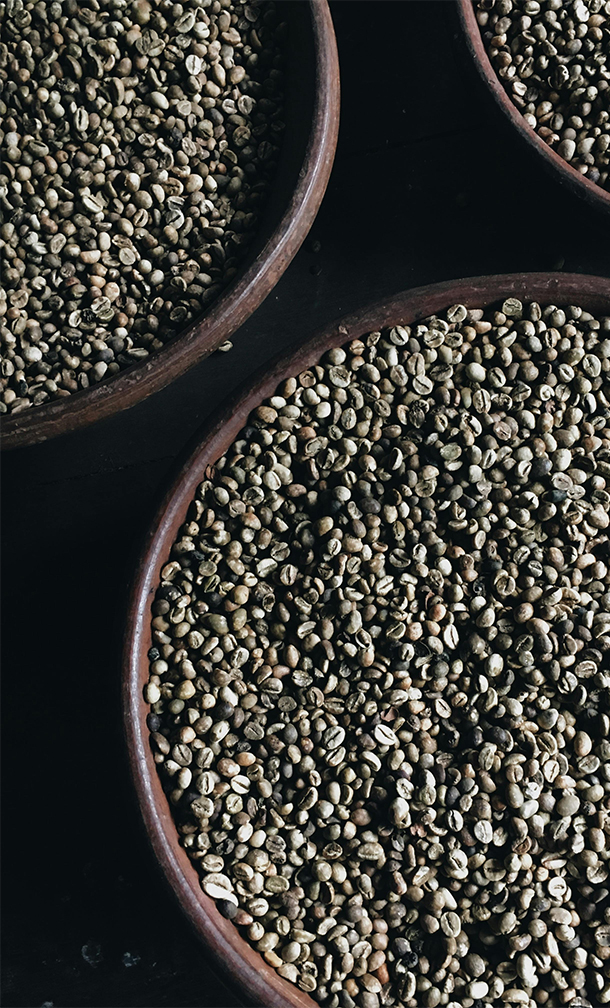White Coffee, ένας νέος τρόπος καβουρδίσματος του καφέ

A new trend promises coffee lighter in taste and heavier in caffeine.
In the world of coffee, new trends are constantly emerging, as an increasingly demanding and informed public seeks new thrills, whether it concerns the taste and aroma of coffee, its health benefits, or its environmental footprint. A few years ago, dewaxed coffee made a sensation in the coffee industry, as a "bridge" between regular and decaffeinated coffee. For a few months now, the new trend goes by the name of White Coffee.
This is not a special preparation with a lot of frothed milk, but coffee that has been lightly roasted, so that the beans do not have time to darken at all. Let's get to know him better!
 What is White Coffee?
What is White Coffee?
The main difference of "White Coffee" compared to conventional coffees lies in its roasting. As we know, the green, raw is roasted for a short time at high temperatures in order to get its characteristic aromas and be ready for consumption. Depending on the roasting time, the roast can be light, medium or dark, with each of these profiles having fanatical friends and foes. In "white" coffee, things are a little different.
While coffee is usually roasted at 200 – 250 degrees Celsius for a few minutes, depending on the degree of roasting the roaster wants to achieve, in "white" coffee roasting temperatures do not exceed 180 degrees Celsius. While the old rule of thumb states that if we want a light roast, we should remove the beans from the heat as soon as the first "crack" is heard, in White Coffee this removal is done before the crack is even heard.
The result is a coffee completely different from the usual, with the lightest roast imaginable, and with an off-white color, to which it also owes its name – but its main differences are found in its taste and aroma, but also in its caffeine content.
What does White Coffee taste like?
While understandably the taste and aroma of coffee is highly dependent on its variety and terroir, this particular roasting profile gives the coffee a delicate aroma, smooth body and accentuates the aromas of nuts and flowers. In general, it gives a lighter coffee, from which the bitterness and the usual strong aromas of coffee are absent. The natural oils of the coffee are preserved longer, giving a "dry Carpathian" feeling, while the same happens with the sugars, as a result of which the coffee is sweeter than the conventional one.
There are not a few who argue that White Coffee is healthier than conventional coffee, as the particularly light roasting helps to preserve more of the antioxidant elements, such as chlorogenic acid, which has an anti-inflammatory effect, while it is also linked to the protection of heart and weight loss.
However, as coffee beans are roasted for less time and at a lower temperature, they are harder and denser, which makes them harder to grind. Many, in fact, argue that grinding White Coffee is practically impossible in a home grinder or home espresso machine, and prefer to buy White Coffee ground – this is also the reason that while it is a special product, which reaches the limits of specialty, it is usually available ground, unlike the vast majority of higher quality coffees.
Is White Coffee lighter than regular coffee?
This is a very interesting question, and the answer may surprise many. If by the term "light coffee" we mean taste and aroma, then certainly, "white" coffee is much lighter, sweeter and more aromatic than any conventional coffee, to the point that it is an alternative for people who love coffee but no one can stand the feeling of bitterness. On the other hand, if by the term "strong" coffee we mean the caffeine content, the truth is different.
Despite popular belief, the more coffee is roasted, the lower its caffeine content, with dark roasts being lighter than light roasts, although the difference between a medium and a dark roast is practically negligible and imperceptible. However, in such a light roast, as it is for white coffee, the caffeine is significantly more – so we have the paradox of having a "light" coffee flavor, which at the same time is "heavy" in caffeine content.
Although dark, bittersweet espresso lovers will disagree, White Coffee is definitely worth a try.








